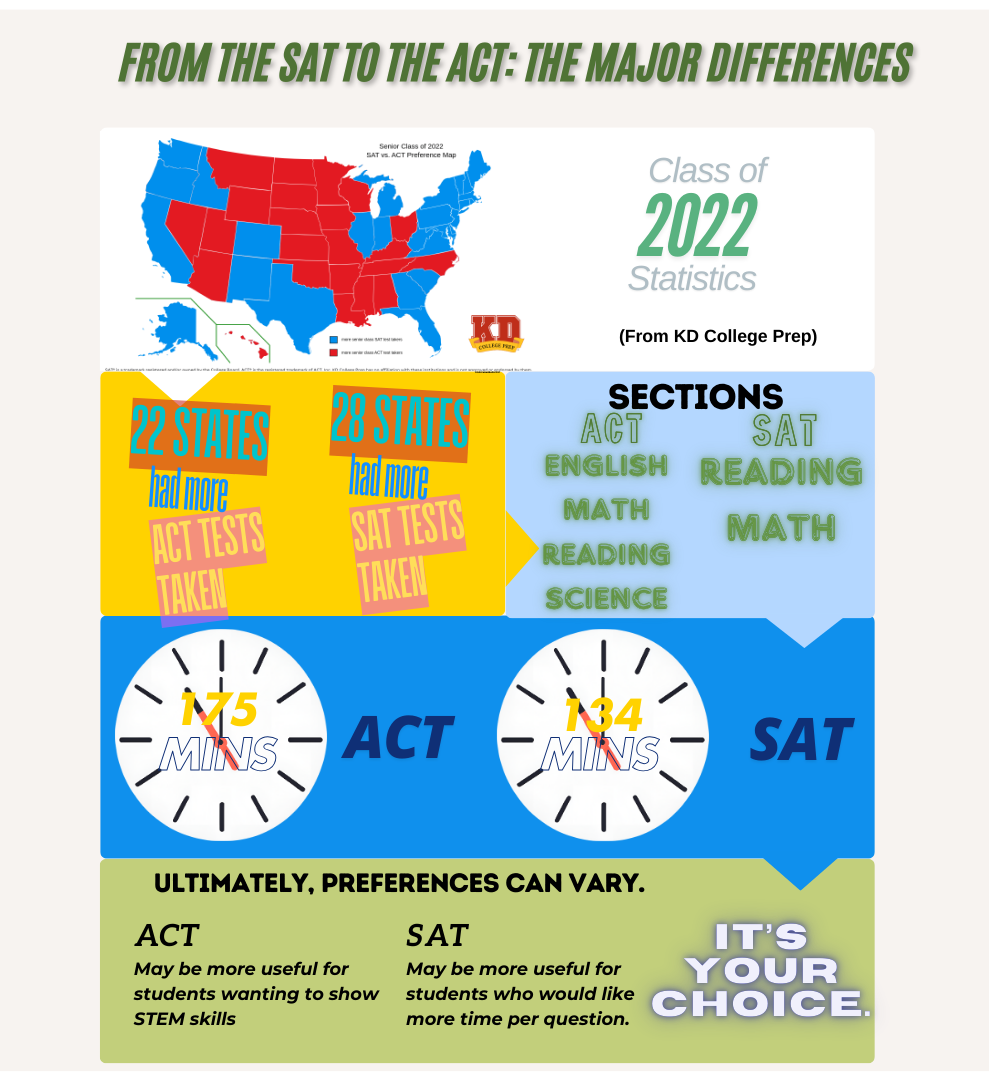For the past several years, North has been giving the SAT as the standardized test for high schoolers in the spring. However, it was recently announced that the ACT will now be replacing the SAT statewide.
After taking the SAT for so many years, questions arose as to why the state of Illinois has decided to switch to the ACT.
“The switch to the ACT is actually an Illinois State decision,” said Katharine Gomez, Assistant Principal for College and Career Readiness. “[The] Illinois State Board of Education decided…that they were going to sign a contract with ACT for the next six years. So for the next six years, every high school in Illinois will be giving the ACT.”
No one is completely sure what is going to happen when this contract comes to an end.
“The board of education for the state of Illinois will make that decision,” said Gomez. “Then we’ll either continue with the ACT, or we’ll shift back to the SAT, or maybe there will be a new test by then.”
A noticeable difference between the SAT and ACT is in the content they assess.
“Right now, the ACT is composed of four sections. There is an English section, a math section, a reading section and a science section,” Gomez said. “The SAT is only composed of two, an English and a math [section], so the biggest shift initially is going to be including that science section.”
Including more components in the ACT means that the test will last longer than the SAT, especially in the coming years as a new writing section is incorporated in 2026.
Despite the statewide shift from the SAT, juniors still took the PSAT earlier this week on Oct. 16.
“The reason the juniors are taking the PSAT is because it’s also a National Merit Scholarship Qualifying Test,” said Gomez. “The juniors who take the PSAT, depending on their score, can qualify for all sorts of scholarships and can become National Merit Scholars, which is a very distinguished accolade.”
However, juniors may be taking a different test to qualify for National Merit Scholarships in the following years.
“In the future, I’m not sure if we will still be taking [the] PSAT,” Gomez said. “We might be taking the National Merit qualifying test through the ACT. That has yet to be determined.”
This change in standardized testing is controversial among North students, especially as many of them now have to pay to take the SAT outside of school.
“I’ve been taking the PSAT since I was in 6th [grade], and now I’m not going to be able to take the SAT at North,” said Holly Stone, junior. “We’ll [have] to take the ACT, which I’ve never taken before, so it’s kind of frustrating and honestly a little scary to take a different standardized test.”
This switch from the SAT to the ACT is going to impact students at North, an effect which will become more apparent during testing in the spring.
“I think that what most high schools in Illinois, including St. Charles North, do really, really well, is prepare our students for any kind of hurdle or obstacle they come across,” said Gomez. “I think that our students are going to do a really great job continuing to express their knowledge regarding English, reading and math. I think what will be interesting is to see how we perform within the science section, and then, depending on what we see…we’ll be able to adjust our instruction accordingly to make sure that all of our students are succeeding and are set up for success.”










Tyler M • Oct 18, 2024 at 6:10 pm
Great article Zoe! Keep up the good work!